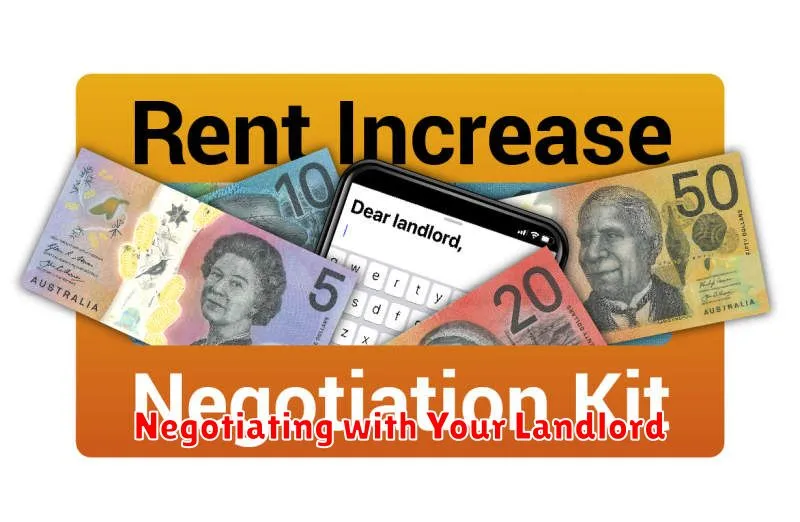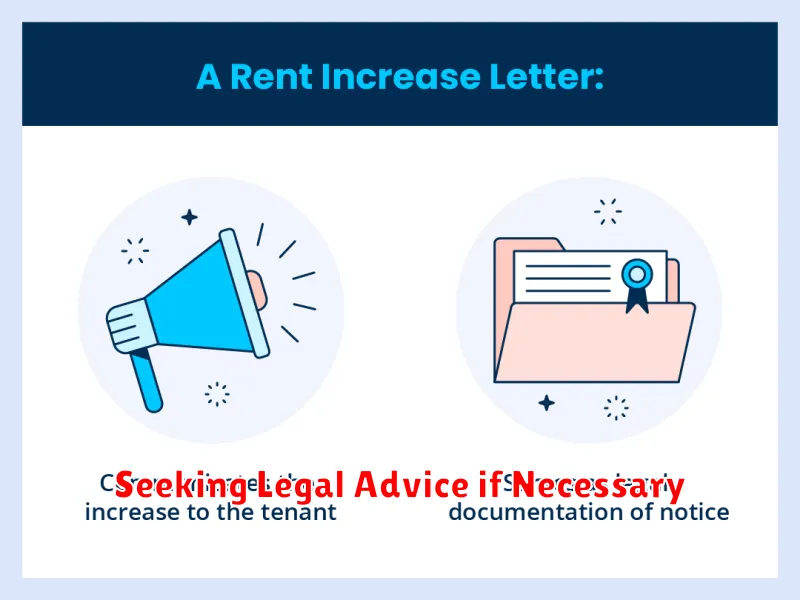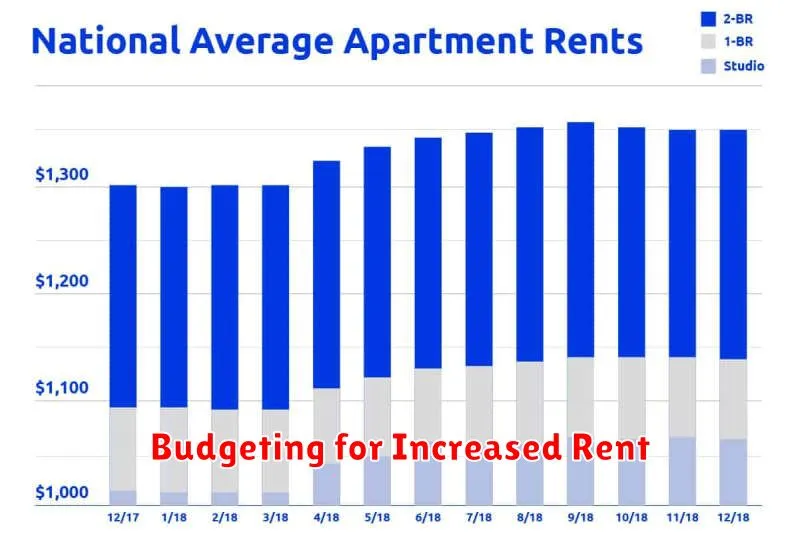Being a renter can be a great way to live, but it has its share of ups and downs. One of the biggest challenges renters face is a rent increase. If your landlord has raised your rent, it can be frustrating and stressful, especially if you weren’t prepared. Don’t worry, though – there are steps you can take to manage the situation. This article will discuss what you can do if your landlord raises the rent, including what to do if you can’t afford the increase.
Understanding Your Lease Agreement
Before you start negotiating with your landlord about a rent increase, it’s essential to understand your lease agreement. Your lease is a legally binding contract that outlines the terms of your tenancy, including the rent amount, duration of the lease, and any other relevant details. Carefully reviewing your lease will help you determine if your landlord is acting within their rights in raising the rent.
Look for clauses that address rent increases. Some leases may contain a specific clause outlining how and when the landlord can raise the rent. It may specify a notice period required, or the maximum allowable increase percentage.
In addition to the rent increase clause, pay attention to the lease’s renewal provisions. These clauses determine the terms for renewing your lease at the end of its current term. Understanding how renewals are handled will give you clarity on potential rent changes.
By thoroughly understanding your lease agreement, you’ll be better equipped to discuss a rent increase with your landlord. This knowledge will provide you with leverage to negotiate a fair and reasonable rent increase that aligns with the terms of your lease and your rights as a tenant.
Reviewing Local Rent Control Laws
In some areas, local rent control laws may limit how much your landlord can raise your rent. These laws vary by city and state, so it’s important to check with your local government or housing authority to see what regulations apply to your situation.
Rent control laws typically establish rent increases based on factors like inflation, property taxes, and the cost of maintenance. If your landlord is raising your rent beyond the limits set by local rent control laws, you may have grounds to challenge the increase.
Here are some things to consider when reviewing your local rent control laws:
- What are the limits on rent increases?
- Are there any exemptions to rent control laws?
- How can you file a complaint if your landlord violates rent control laws?
By understanding your local rent control laws, you can protect yourself from unreasonable rent increases and ensure your rights as a tenant are being respected.
Negotiating with Your Landlord

If your landlord is raising the rent, it’s understandable to feel frustrated. You may be wondering if there’s anything you can do about it. The answer is yes! It’s important to remember that you are in a business relationship with your landlord and while they have the right to increase rent, you also have the right to negotiate.
The first step is to understand your lease agreement. Some leases have clauses that specify the conditions under which rent increases can be made. It’s also important to understand the rent laws in your area. These laws often dictate the amount of time your landlord must give you notice before raising the rent and the maximum amount they can increase it. Once you’re familiar with these regulations, you can start planning your negotiation.
It’s a good idea to gather evidence that supports your case for a lower rent increase. This can include things like the condition of the property, the local market rate for similar rentals, or recent improvements made to the property. It’s important to remain calm and respectful. Approach the conversation as a chance to find a solution that works for both you and your landlord. Be willing to compromise. You might be able to reach an agreement on a lower rent increase than what was initially proposed.
If you can’t reach an agreement with your landlord, you have options. You can consider moving, although this can be a hassle and expensive. You may also consider filing a complaint with your local housing authority. Depending on your situation and local laws, this could lead to a resolution.
Considering Your Options
A rent increase can be frustrating, but it’s important to remember you have options. The first step is to understand your local laws and your lease agreement. Some areas have rent control laws that limit how much your landlord can raise your rent. Your lease may also specify rent increase terms. If you have a good relationship with your landlord, you can try to negotiate a lower increase or discuss a payment plan.
You may also consider moving if you can’t afford the new rent. If you’re happy with your living situation, you can try to find ways to reduce your expenses elsewhere to offset the rent increase. Remember to weigh your options carefully and make the decision that’s best for your financial situation.
Researching Comparable Rental Rates
One of the first things you should do when your landlord raises the rent is to research comparable rental rates in your area. This will help you determine if the rent increase is justified. You can use websites like Zillow, Trulia, and Apartments.com to search for similar properties in your neighborhood. Be sure to filter your search by the number of bedrooms, bathrooms, and other amenities to find properties that are truly comparable to yours.
Once you have a good understanding of the rental market in your area, you can compare your current rent to the average rent for similar properties. If your rent is significantly higher than the average, you may have a case to negotiate a lower rent with your landlord.
Documenting Communication
It is important to document all communication with your landlord, especially when it comes to rent increases. This documentation can be helpful if you need to dispute the rent increase or take legal action.
Keep a record of all communication, including:
- Dates of communication
- Methods of communication (e.g., email, letter, phone call)
- Content of communication (e.g., a copy of the rent increase notice, notes about any conversations you had with your landlord)
You can document communication by:
- Keeping copies of all emails, letters, and other written communication
- Taking detailed notes of phone calls
- Recording phone calls with your landlord (be sure to check your state’s laws on recording phone calls)
By documenting your communication with your landlord, you can protect yourself if you need to dispute the rent increase or take legal action.
Seeking Legal Advice if Necessary

While you may be able to negotiate with your landlord or work out a solution together, there are times when you might need to seek legal advice. This is especially true if your landlord is attempting to raise the rent beyond what is considered reasonable in your area or if they are trying to evict you without following proper legal procedures.
A lawyer can help you understand your rights as a tenant and can represent you in court if necessary. They can also help you draft a letter to your landlord outlining your concerns and demanding that they cease and desist from violating your rights.
You may be able to find a lawyer specializing in landlord-tenant law through your local bar association or online legal directories. Many organizations also provide free legal advice to low-income individuals.
Preparing for Potential Relocation
A rent increase can be a stressful situation, especially if it significantly impacts your budget. If you find yourself unable to afford the new rent, you may have to consider relocating. While this can be a daunting task, it’s essential to prepare for the possibility.
Start by making a list of your priorities. What are your non-negotiables in your next home? Consider factors like location, size, amenities, and budget. Once you have a clear picture of what you’re looking for, start researching potential neighborhoods and properties.
Take advantage of online resources and real estate websites to explore available options. You can also reach out to local real estate agents for assistance in finding suitable properties. Additionally, begin budgeting for potential moving costs, including deposit, first month’s rent, and potential security deposit.
Remember, relocating can be a challenging but rewarding process. By preparing in advance and staying organized, you can navigate this transition with less stress and find a new home that meets your needs and budget.
Budgeting for Increased Rent

A rent increase can be a stressful situation, but it’s important to stay calm and assess your options. One of the first steps is to create a budget that reflects the new rent amount. This will help you determine if you can afford the increase or if you need to make some adjustments to your spending habits.
Start by listing all of your monthly expenses. These include things like your current rent, utilities, groceries, transportation, and entertainment. Compare this with your current income and see where you can cut back.
Here are some tips for creating a budget:
- Track your spending: Use a budgeting app or spreadsheet to monitor where your money is going. This will help you identify areas where you can save.
- Negotiate bills: Call your utility companies and phone providers to see if you can negotiate lower rates.
- Reduce unnecessary spending: This might include canceling subscriptions you don’t use, cooking at home instead of eating out, or cutting back on entertainment.
- Consider a roommate: If you’re living alone, consider finding a roommate to split the cost of rent.
- Explore additional income: Look into side gigs or freelance work to supplement your income.
Remember, creating a budget is an ongoing process. It’s essential to review it regularly and make adjustments as needed. If you’re still struggling to make ends meet, don’t hesitate to reach out to your landlord or a financial advisor for assistance.

